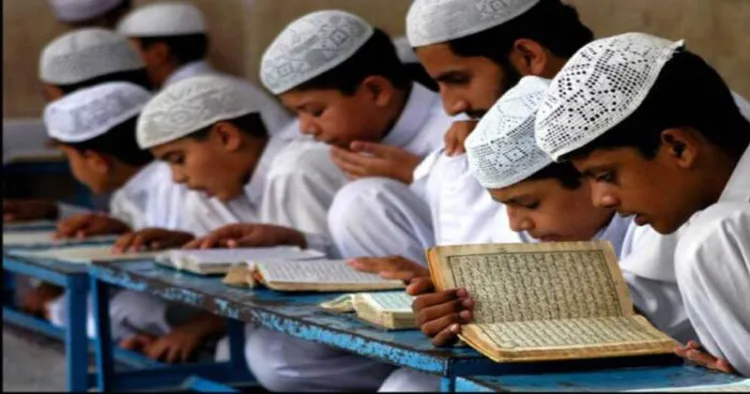In recent weeks, a growing issue has surfaced in Uttarakhand, particularly in the Udham Singh Nagar district, where a significant number of illegal madrasas are reportedly operating. According to district authorities, 129 such institutions have been identified, prompting concerns about the influx of unregistered religious education centres and their implications on local security, governance, and societal integration. With over 2,000 illegal madrasas suspected to be functioning across the state, the Uttarakhand government is under pressure to take swift action to address the situation.
The state of Uttarakhand, once relatively quiet on the issue of illegal religious institutions, is now seeing a surge in the discovery of such establishments. Pankaj Upadhyay, the Additional District Magistrate (ADM) of Udham Singh Nagar, confirmed that 129 madrasas in his district alone have been flagged as illegal. These madrasas were operating without registration and without adhering to the prescribed educational norms. Their identification comes on the heels of an investigation triggered by intelligence reports indicating that many madrasa operators, facing stricter regulations in neighbouring Uttar Pradesh, have been shifting their operations to Uttarakhand’s border areas.
The crackdown began after the Yogi Adityanath-led government in Uttar Pradesh intensified its scrutiny of madrasa operations in that state. Following this, Uttarakhand’s Chief Minister Pushkar Singh Dhami ordered a state-wide investigation into madrasa activities. The direction was given to district officials to ensure that all madrasas, whether registered or unregistered, complied with national educational standards, including teaching subjects such as science, mathematics, English, and Hindi, alongside religious education.
One of the most alarming aspects of the situation is the revelation that many of the children enrolled in these illegal madrasas are from other states, including Bengal, Bihar, Jharkhand, and Uttar Pradesh. The intelligence department has raised concerns that these children, who are living in Uttarakhand, might become residents of the state in the future, raising questions about their social and economic integration. The authorities are also concerned about the funding of these madrasas, especially the sources of financial support and the accounts through which this money is being channelled.
The identification of these 129 illegal madrasas in Udham Singh Nagar is only the beginning. Authorities fear that the real number of such establishments could be much higher, with over 2,000 suspected to be operating across the state. These madrasas are not only raising concerns about non-compliance with educational standards but also about the potential risks associated with their unchecked proliferation in border districts.
The state government is now grappling with a delicate question: What action should be taken against these illegal institutions? Reports suggest that sealing off the illegal madrasas could be one of the immediate measures. There is also speculation that some of these madrasas may face demolition or further legal actions if found to be non-compliant with existing regulations.
The emergence of illegal madrasas in Uttarakhand, especially in border districts like Udham Singh Nagar, has triggered a serious security and educational concern for state authorities. While the government has initiated investigations and has raised important questions about the funding and management of these institutions, the larger issue remains whether the state can enforce its laws effectively and curb the growing presence of unregistered madrasas.



















Comments